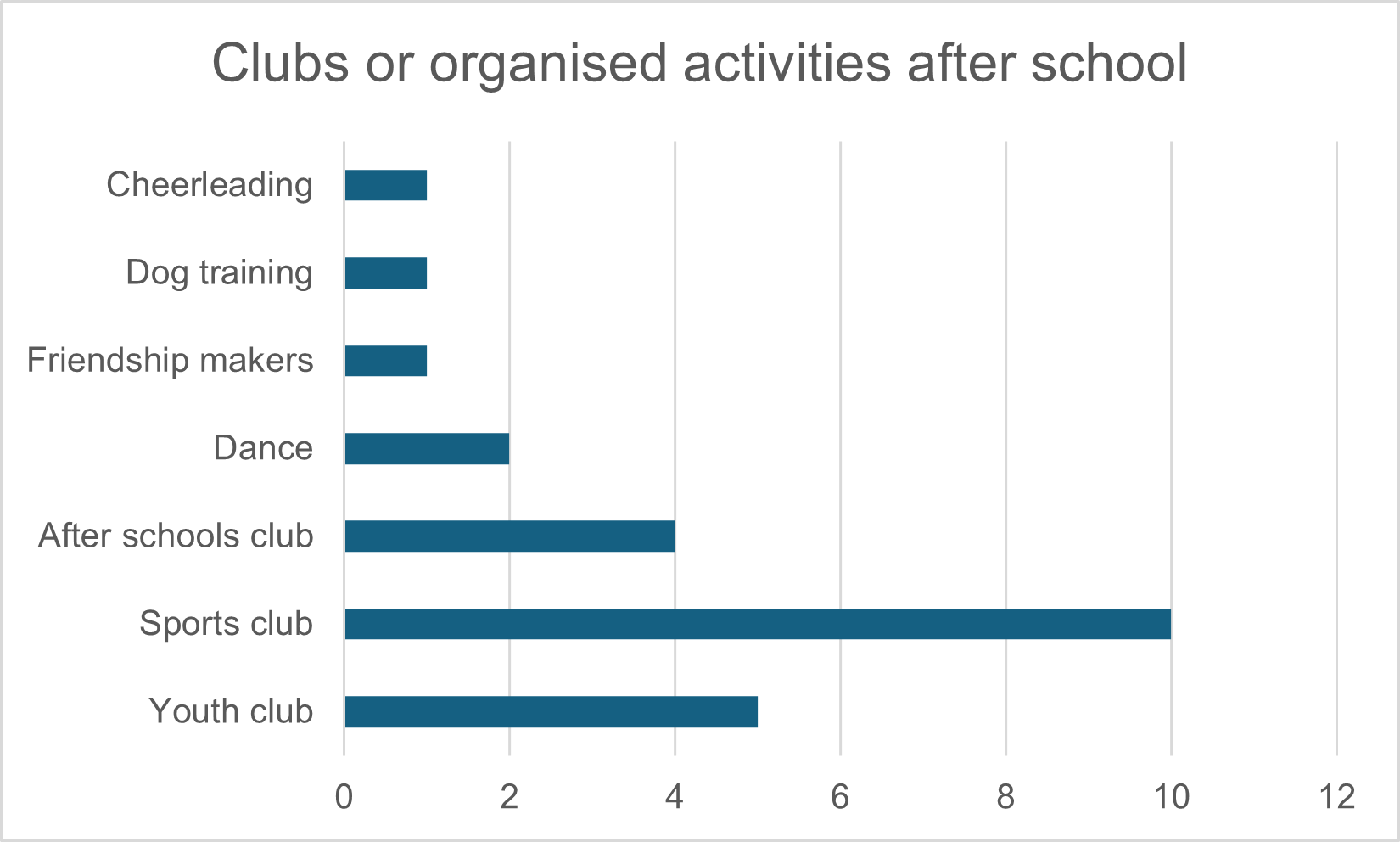We had 34 validated responses. 44% who did attend school had an EHCP. Most respondents were between the ages of 11 and 14 years old. 16 of the respondents are female, 15 male, 1 transgender, 2 said ‘other’ or ‘don’t want to say’. Transgender and gender-diverse adults are three to six times more likely than cisgender adults (individuals whose gender identity corresponds to their sex assigned at birth) to be diagnosed as autistic.1 This needs to be considered when planning services and support for autistic young people.
What we asked
Do you enjoy school?
38% did not enjoy school, whilst 41% liked it or thought it OK. Recent studies suggest that a third of students do not like school.
Noise was stated as the main reason by respondents as to why they didn’t like school.2 Other things they found challenging included crowds, chaos (particularly in hallways) and smells. Many also found the size of the school or college overwhelming and struggled with both the amount of work and the difficulty. This led to feeling overwhelmed and trapped, scared and unsafe.
Having many different teachers with different rules led to misunderstandings and lack of trust for adults. Not having friends made a big difference to their enjoyment of school.
36% of young people cited friends as being the best thing about school. This is much lower than children at primary school of which 70% said they had friends. Other reasons they liked school were favourite teachers and adults they could trust, being around people like them and feeling understood.
Routine and structure also featured, and it was important to be able to take time alone.
18% were not in education or training (NEET). This is higher than the national average of 10.6%.3
What do you like doing outside of school or college?
- 1
Transgender and gender-diverse individuals are more likely to be autistic and report higher autistic traits, University of Cambridge
- 2
What do kids like and dislike about school? This is why it matters – and we can do something about it, The Conversation
- 3
NEET: Young People Not in Education, Employment or Training, House of Commons Library
47% of young people didn’t engage in any clubs or organised activities after school. However, they met with friends, went to the cinema or theatre, played sports, spent time gaming or had hobbies like photography, crafting or playing a musical instrument.
"It would be nice for 16 years olds to go and meet new people with the same interests as there is nowhere to go and I'm socially awkward and need help."

Some young people attended more than one club, for example, cheerleading and gymnastics.
There were 16 young people who did not engage with any organised clubs or activities. Many were unaware of clubs or groups in Bracknell Forest. They mainly relied on information from their family or school and were unsure how to find out about clubs that may suit their interests.
Most young people are partially happy or happy with their social groups and ability to socialise. 30% are unhappy. Family is the most common support for young people’s safety and happiness.
89% of young people visit Bracknell town centre at least sometime. 75% found it to be sometimes too busy or challenging.
Some suggestions to make things more comfortable for them included:
- scheduled quiet times (no music in shops)
- more awareness from staff in shops about autism
- more visual symbols on signs
- less flickering lights
- sensory rooms
- one way walkways
- quiet or green spaces or mini park to regulate in
What are your future aspirations?
56% said they had not thought about what they might want to do once finishing school. For those who had:
- 11 wanted to go to college
- 4 had thought about an apprenticeship
- 2 thought about a supported internship
- 3 young people wanted to get a job
For young people who know what they want to do after finishing college, getting a job was the most selected desired next step and 4 considered university.
89% of young people are not aware of the Approaching Adulthood team who could offer support in their transition to adulthood. Most young people either see themselves as living with their family or on their own in adulthood.
Other things that were raised on several occasions was that they did not feel listened to and there seemed to be a lack of concern for their mental health. Feeling like they did not fit in was a cause of anxiety.
"I’m not sure what’s available and I feel like, because I couldn’t cope at a mainstream school, how could I ever manage college or university. I’m scared I won’t get a job or a job that I can cope with that will pay enough money."
Feedback on the survey from Early Help practitioners suggested that for children and young people who share a bedroom with an autistic sibling, this can also have an impact on their mental health and wellbeing which can be overlooked.